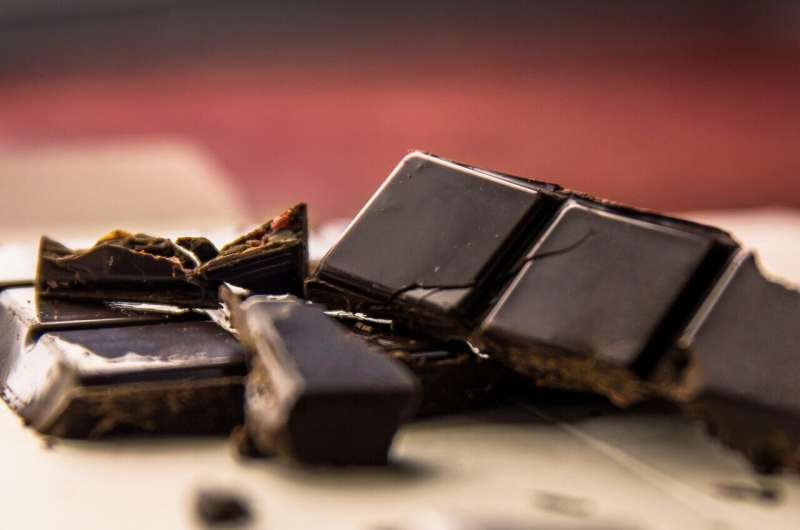Eating chocolate is typically discouraged by nutritionists, as it is can be high in calories, fat and sugar. Cocoa, however, chocolate's primary ingredient derived from the seed of the cacao plant, has been found to have numerous that could be beneficial for both the body and mind.
To do this, they took 35 rats and divided them into five groups of 7, each of which was fed dark chocolate while experiencing chronic isolation stress, with each group following a different dietary pattern. The three dark chocolate dietary patterns they tested were dubbed stress-compulsory, stress-optional and stress-restricted.
"The stressed rats on a compulsory diet only received DC and the ones on an optional diet received unlimited chow and/or DC," the researchers wrote in their paper. "Also, the stressed rats on a restricted diet each received chow freely and only 4 g DC daily. Subsequently, the slope and amplitude of field excitatory postsynaptic potentials (fEPSPs) were assessed based on the Input-Output (I/O) curves and after the long-term potentiation (LTP)."
The researchers also measured the food intake and body weight of the rats they tested on at the beginning and end of their experiment. Interestingly, they found that all the dark chocolate dietary patterns reduced both the rats' food intake and their body weight. The strongest effects, however, were those caused by compulsory and restricted dietary patterns.
"The fEPSP slope and amplitude in the I/O curves and after LTP decreased significantly in the stress group compared to the control group," the researchers wrote in their paper. "Although the slope and amplitude both enhanced non-significantly in the optional DC diet, these parameters changed significantly in both compulsory and restricted DC dietary patterns compared to the stress group. Also, food intake and body weight decreased significantly in all DC groups."
Overall, the experiments carried out by this team of researchers suggest that the systematic consumption of dark chocolate could reverse the adverse effects of chronic isolation stress on the synaptic potency and plasticity of the hippocampal CA1 area. This would in turn have beneficial effects on both memory and learning.
As their study was carried out in rats, however, to be applicable to humans, their findings would need to be validated on a human sample of participants. If their results were confirmed in future studies involving humans, their work would offer evidence of the positive effects of cocoa on the brain and on cognitive abilities.
More information: Elham Kalantarzadeh et al, The impact of different dark chocolate dietary patterns on synaptic potency and plasticity in the hippocampal CA1 area of the rats under chronic isolation stress,
Nutritional Neuroscience (2022).
DOI: 10.1080/1028415X.2022.2088946
© 2022 Science X Network
Citation: Study explores the effects of eating dark chocolate on the brain (2022, July 14) retrieved 14 July 2022 from https://medicalxpress.com/news/2022-07-explores-effects-dark-chocolate-brain.html
This document is subject to copyright. Apart from any fair dealing for the purpose of private study or research, no part may be reproduced without the written permission. The content is provided for information purposes only.










 User Center
User Center My Training Class
My Training Class Feedback
Feedback












Comments
Something to say?
Log in or Sign up for free